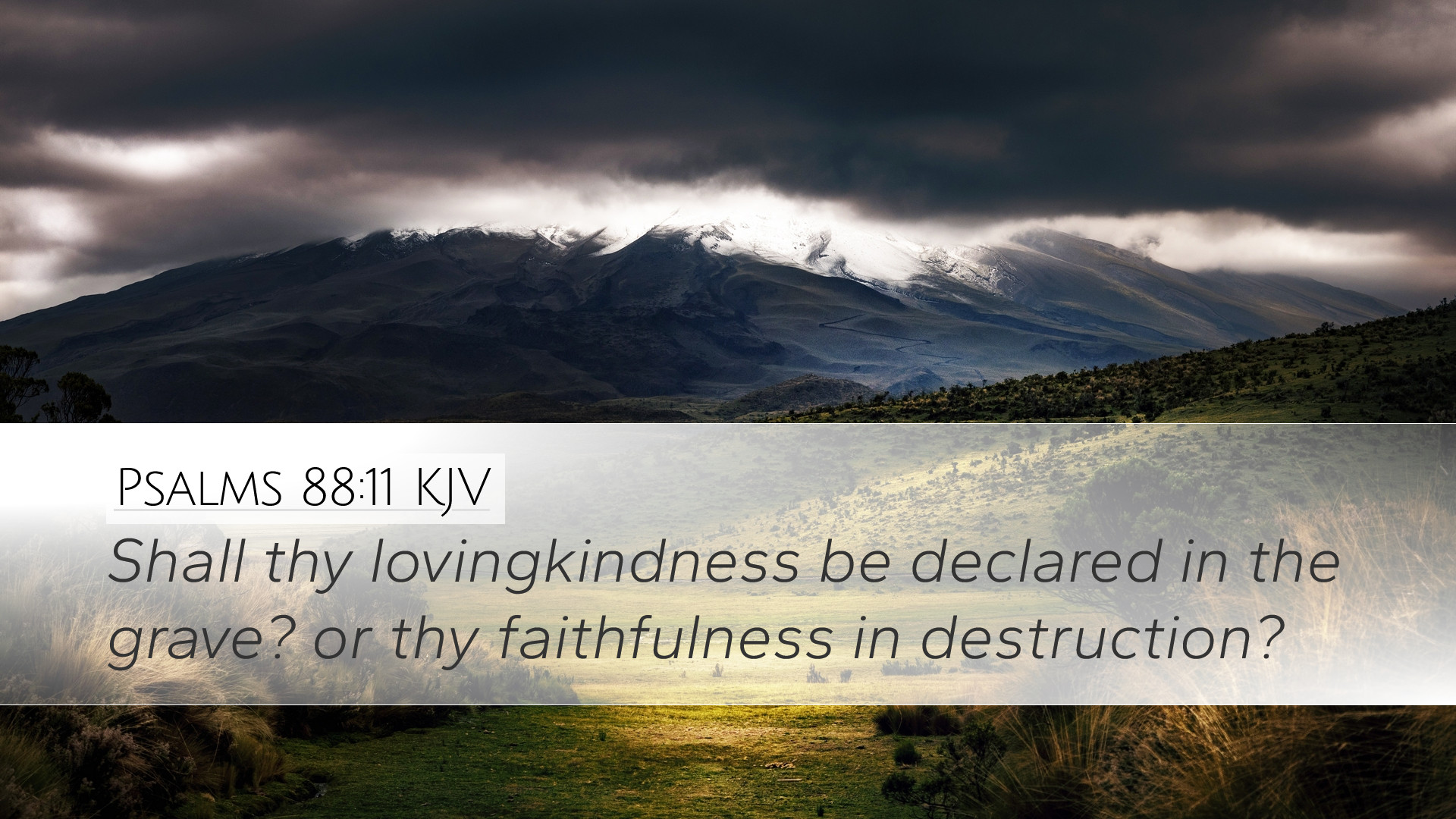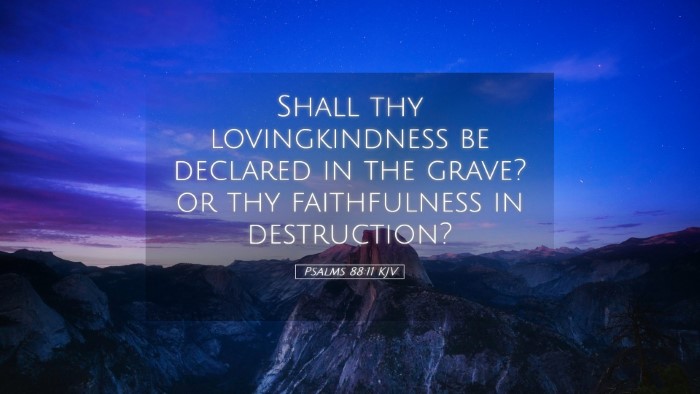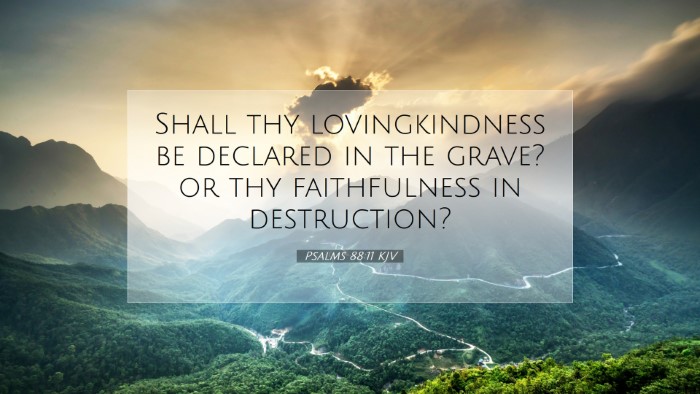Psalms 88:11 - A Commentary
Verse: "Shall thy lovingkindness be declared in the grave? or thy faithfulness in destruction?"
Introduction
The verse from Psalms 88:11 encapsulates profound themes of despair intertwined with queries about God's nature and His faithfulness. This Psalm is attributed to Heman the Ezrahite and is often viewed as one of the bleakest in the Psalter, expressing deep anguish and an intense feeling of abandonment.
Contextual Background
Heman’s lament not only serves to articulate personal sorrow but also probes theological questions about God’s character in the face of human suffering. This chapter stands amidst the backdrop of Israel’s struggles and echoes the sentiment of crises faced by God’s people.
Commentary Insights
1. Mourning and Despair
Matthew Henry notes that the context of this Psalm is one of unspeakable sorrow. The psalmist describes how his soul is full of troubles and has faced the weight of God’s wrath. The vivid imagery of the grave reflects the depth of despair, highlighting a feeling of being entombed by suffering.
Heman questions the effectiveness of declaring God's lovingkindness in the grave, as this reflects a yearning for understanding how God’s care resonates in the face of death and despair. His lament is an honest expression of anguish, depicting a soul that is seeking light in the shadow of death.
2. The Nature of God’s Attributes
Albert Barnes offers insights into the attributes of God that are central to this query. The psalmist seeks to understand how God's lovingkindness and faithfulness can be recognized after death, in a realm where relationships and expressions of divine attributes seem to cease.
This raises significant theological questions about life after death, the continuance of God’s covenants, and the essence of worship beyond the grave. The psalmist's predicament challenges readers to reflect on the continuity of God's nature and the believer's hope amid suffering.
3. Theology of Destruction
Adam Clarke provides a compelling interpretation of destruction in this verse. The Hebrew word for destruction can embody the notion of the pit, a metaphor for death or a state of total despair. Clarke emphasizes that the psalmist feels alienated from God while in such a state, questioning how God's faithfulness can be manifested in such desolation.
This insight invites theologians to explore the concept of hope and despair, particularly how God’s faithfulness is perceived during times of deep suffering. Clarke encourages believers to recognize that even in the depths of despair, God’s character remains unchanging, though it may not always be evident in our circumstances.
Theological Implications
Understanding Psalms 88:11 enriches the theological perspective on suffering and divine attributes. The faithful may often grapple with feelings of abandonment when confronting life's deepest challenges. This text serves as a reminder that lament is an integral part of faith, allowing for raw expressions of emotion in God’s presence.
- Expression of Genuine Emotion: The Psalm teaches that it is acceptable to bring one's pain and sorrow before God, acknowledging what often feels like His absence in times of trouble.
- Hope and Assurance: While the psalmist questions God's attributes, the greater biblical narrative upholds the continuation of faith and trust in God’s ultimate goodness, even when circumstances are bleak.
- Invitation to Reflection: Believers are invited to contemplate how faith informs their understanding of both God's silence and His steadfast presence through trials.
Pastoral Applications
For pastors and spiritual leaders, Psalms 88:11 provides a potent framework for ministry. It acknowledges the reality of grief and suffering while guiding congregants toward understanding God's unchanging nature in adversity.
In pastoral care, one can draw from this Psalm to validate the feelings of those who are mourning or experiencing hardship, emphasizing that questioning God is part of a vibrant faith experience. The intention should be to lead believers toward the reassurance that God's love and faithfulness prevail, even amidst their darkest valleys.
Conclusion
Psalms 88:11 serves as a striking reminder of the complexity of human emotion and the profound nature of God’s character. It beckons both scholars and laypersons alike to investigate the depths of God’s lovingkindness through the lens of suffering. In understanding this verse, we can better comprehend the dual aspects of lament and hope, which form the foundation of the believer's journey in faith.


